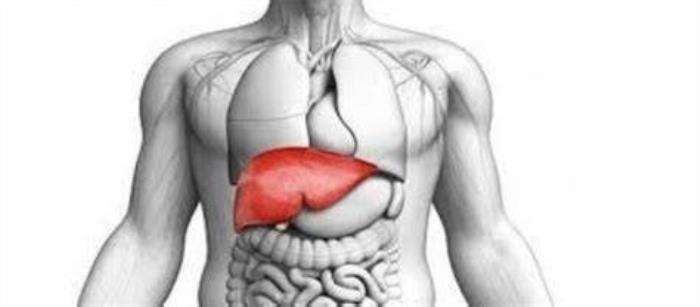Liver transplantation is a critical surgical procedure designed to replace a diseased liver with a healthy one from a donor. This procedure is often necessary for patients suffering from severe liver diseases such as cirrhosis, hepatitis, or liver cancer. The success of a liver transplant significantly depends on various factors, including the patient's overall health, the quality of the donor liver, and the post-operative care provided. Proper recovery is essential to ensure the transplanted liver functions effectively and the patient's quality of life improves.
Medical disclaimer: This content is for general awareness and does not replace a doctor’s consultation. For diagnosis or treatment decisions, consult a qualified specialist.
The Role of Post-Operative Care in Liver Transplant Recovery
Post-operative care following a liver transplant is crucial for the patient's recovery. This phase involves regular monitoring for complications such as rejection of the new liver and infections. Patients are typically prescribed immunosuppressive medications to prevent rejection, which can increase susceptibility to infections. Additionally, lifestyle modifications, including a balanced diet and regular exercise, are recommended to enhance recovery. Close follow-up with healthcare providers is essential to manage any complications and to ensure the best long-term outcomes.
Introduction to Alternative Therapies for Liver Transplant Recovery
Alternative therapies encompass a variety of non-conventional treatment modalities that can support recovery after liver transplantation. These therapies include practices such as acupuncture, yoga, herbal medicine, and mindfulness techniques. While these therapies should not replace conventional medical treatments, they can complement standard care by addressing the emotional, psychological, and physical well-being of patients. It is essential for patients to discuss any alternative therapies with their healthcare providers to ensure safety and efficacy.

Acupuncture and Its Benefits in Liver Transplant Recovery
Acupuncture is a traditional Chinese medicine technique that involves inserting thin needles into specific points on the body. This therapy is believed to help alleviate pain, reduce stress, and improve overall well-being. For liver transplant patients, acupuncture may assist in managing post-operative pain and anxiety, thus promoting relaxation and enhancing recovery. Research suggests that acupuncture can improve liver function and boost the immune system, making it a valuable complementary therapy during the recovery process.
The Impact of Yoga on Physical and Mental Health After Liver Transplant
Yoga is a holistic practice that combines physical postures, breathing exercises, and meditation. For liver transplant recipients, yoga can enhance physical strength and flexibility while promoting mental clarity and emotional stability. Engaging in gentle yoga postures can improve circulation and support liver function, while the meditative aspects of yoga help reduce stress and anxiety. Regular practice may also lead to better adherence to medications and lifestyle changes, contributing positively to the overall recovery journey.
Herbal Supplements: Potential Benefits and Risks for Liver Transplant Patients
Herbal supplements have gained popularity among patients seeking alternative therapies. Certain herbs, such as milk thistle and turmeric, are often touted for their liver-protective properties. However, it is critical for liver transplant patients to approach herbal supplementation with caution. Some herbs may interact with immunosuppressive medications, potentially compromising the transplant outcome. Therefore, patients should consult their healthcare providers before incorporating any herbal products into their recovery regimen.
Mindfulness and Meditation Techniques for Stress Management
Mindfulness and meditation are effective techniques for managing stress and anxiety, which can be heightened during the recovery period after a liver transplant. These practices encourage patients to focus on the present moment, promoting relaxation and emotional balance. Research indicates that mindfulness can improve overall quality of life and may even enhance immune function. Incorporating mindfulness practices into daily routines can help patients cope with the emotional challenges of recovery and foster a positive mental state.
Nutrition and Diet: The Foundation of Recovery After Liver Transplant
Proper nutrition is fundamental for recovery after a liver transplant. A well-balanced diet rich in fruits, vegetables, whole grains, and lean proteins can support healing and overall health. Patients are often advised to limit sodium and saturated fat intake to prevent complications such as hypertension and weight gain. Additionally, staying hydrated is essential for optimal liver function. Collaborating with a registered dietitian can help tailor a nutrition plan that meets individual needs and supports recovery.

The Importance of Regular Physical Activity in Recovery
Engaging in regular physical activity is crucial for liver transplant patients as it aids in regaining strength, improving cardiovascular health, and enhancing overall well-being. Light to moderate exercise, such as walking or swimming, can help combat fatigue and promote a healthy weight. Exercise also plays a significant role in reducing stress and improving mental health. Patients should consult their healthcare team to develop a safe and effective exercise regimen that aligns with their recovery goals.
Integrating Alternative Therapies with Conventional Treatments
Integrating alternative therapies with conventional treatments can provide a holistic approach to recovery after a liver transplant. This integration involves collaboration between the patient and their healthcare team to ensure that all therapies complement each other. For instance, while patients may benefit from acupuncture or yoga, they must continue adhering to prescribed medications and follow-up appointments. Open communication with healthcare providers about any alternative therapies being pursued is essential to avoid potential interactions and ensure a safe recovery process.
Monitoring and Evaluating the Effectiveness of Alternative Therapies
Monitoring the effectiveness of alternative therapies in liver transplant recovery is vital for assessing their impact on patient health. Patients should keep a journal documenting their experiences, including physical, emotional, and psychological changes. Regular follow-ups with healthcare providers can help evaluate the benefits and any adverse effects of these therapies. This data can guide future treatment decisions and ensure that the chosen therapies align with the patient’s recovery goals and overall health status.
Potential Risks and Considerations of Using Alternative Therapies
While alternative therapies can provide benefits, they also come with potential risks, particularly for liver transplant patients. Certain therapies may interfere with immunosuppressive medications, leading to complications. Additionally, some herbal supplements may have adverse effects on liver function. It is crucial for patients to conduct thorough research and consult healthcare professionals before starting any alternative treatments. Understanding the potential risks and benefits will empower patients to make informed decisions regarding their recovery strategies.
The Role of Support Groups in Recovery After Liver Transplant
Support groups play a significant role in the recovery process for liver transplant patients. These groups provide a platform for individuals to share their experiences, challenges, and coping strategies. Emotional support from peers who understand the journey can alleviate feelings of isolation and anxiety. Additionally, support groups often offer valuable resources and information about alternative therapies and lifestyle changes that can enhance recovery. Engaging with a supportive community can foster resilience and improve overall well-being during the recovery phase.
Patient Education: Empowering Individuals in Their Recovery Journey
Patient education is a cornerstone of successful recovery after liver transplantation. Empowering patients with knowledge about their condition, treatment options, and recovery strategies can enhance adherence to medical advice and improve outcomes. Educational resources should cover the benefits and risks of alternative therapies, as well as lifestyle modifications necessary for optimal recovery. By fostering a proactive approach to health, patients can play an active role in their recovery journey and make informed decisions that align with their personal goals.
Collaboration Between Healthcare Providers and Alternative Therapists
Collaboration between healthcare providers and alternative therapists is essential for ensuring safe and effective recovery for liver transplant patients. This partnership allows for a comprehensive approach to care that addresses the physical, emotional, and psychological aspects of recovery. Healthcare providers can refer patients to qualified alternative therapists, while therapists can communicate patient progress and any concerns back to the medical team. Such collaboration fosters an integrated care model that optimizes patient outcomes and enhances the overall recovery experience.
Research and Evidence Supporting Alternative Therapies in Liver Recovery
Research on the efficacy of alternative therapies in liver transplant recovery is still evolving. However, preliminary studies suggest that therapies such as acupuncture, yoga, and mindfulness can positively impact recovery outcomes. Evidence indicates that these therapies may help reduce stress, enhance immune function, and improve overall quality of life. As interest in holistic approaches grows, further research is needed to establish standardized protocols and guidelines for integrating alternative therapies into post-transplant care.
How to Boost Immune System Health After a Liver Transplant
Explore strategies to enhance immune system health post-transplant. While immunosuppressive medications are necessary to prevent organ rejection, maintaining a balanced diet, staying active, and following medical advice can strengthen immunity and reduce the risk of infections.
How to Handle Post-Liver Transplant Medications and Side Effects
Get insights into managing medications and side effects after a liver transplant. Proper adherence to prescribed medications is crucial for long-term success, but these drugs can sometimes lead to side effects. Learn tips for minimizing discomfort, recognizing potential issues, and maintaining a healthy lifestyle.
Future Directions in Alternative Therapies for Liver Transplant Patients
The future of alternative therapies in liver transplant recovery looks promising as more patients seek integrative approaches to health. Ongoing research aims to explore the safety, efficacy, and best practices for implementing these therapies alongside conventional treatments. Additionally, increased awareness and education among healthcare providers about alternative therapies can facilitate better patient-provider communication and support. As the field evolves, patients may benefit from tailored recovery plans that incorporate both traditional and alternative modalities, enhancing their overall healing experience.
Best Liver Transplant in India
The Best Liver Transplant in India provides life-saving treatment for patients with end-stage liver disease, offering advanced surgical techniques and comprehensive post-transplant care for successful recovery.
Best Liver Transplant Hospitals in India
The Best Liver Transplant Hospitals in India are equipped with cutting-edge technology and expert medical teams, ensuring top-notch care and optimal recovery for liver transplant patients.
Liver Transplant Cost in India
The Liver Transplant Cost in India offers an affordable solution for patients needing liver transplantation, ensuring access to world-class care at competitive pricing.
Best Liver Transplant Surgeons in India
The Best Liver Transplant Surgeons in India are highly skilled in performing liver transplants, providing precise surgeries and personalized care to ensure the best possible outcomes for their patients.
FAQs About Alternative Therapies in Supporting Liver Transplant Recovery
What are some common alternative therapies used in liver transplant recovery?
Common alternative therapies include acupuncture, yoga, herbal supplements, and mindfulness meditation. These therapies can support physical and emotional well-being during recovery.
Are alternative therapies safe for liver transplant patients?
While many alternative therapies can be beneficial, it is essential for patients to consult their healthcare providers before starting any new treatment to avoid potential interactions with medications.
How can I integrate alternative therapies into my recovery plan?
Integrating alternative therapies involves discussing options with your healthcare team, selecting therapies that align with your needs, and maintaining open communication about your experiences and any changes in your health.
Can alternative therapies replace conventional treatments after a liver transplant?
No, alternative therapies should not replace conventional treatments. Instead, they should be used as complementary strategies to enhance recovery and overall well-being.
How can I monitor the effectiveness of alternative therapies?
Patients can monitor effectiveness by keeping a journal of their experiences, noting physical and emotional changes, and regularly discussing their progress with healthcare providers during follow-up appointments.
Explore the critical role of liver biopsy in evaluating transplant eligibility and monitoring post-transplant health, ensuring optimal outcomes. The Role of Liver Biopsy Before and After Transplantation
Family and caregivers are pivotal in supporting liver transplant recovery, ensuring medication adherence, and providing emotional care. The Role of Family and Caregivers in Liver Transplant Recovery
Explore the latest medical advances to reduce liver transplant rejection risk, enhancing patient outcomes and graft longevity. How to Reduce Liver Transplant Rejection Risk: Latest Medical Advances